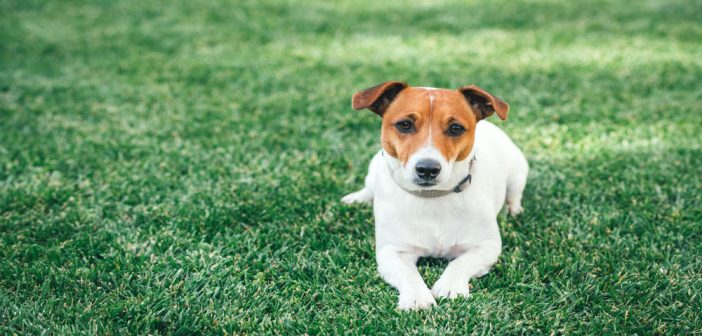Many pet owners love their yards and landscaping but can find themselves at odds with the safety of their fur-kiddies when treating their yards. Keep your pets away from lawns and other treated areas. Pets can be taken to obedience classes or taught to listen and obey your commands, such as ‘stay’ or ‘come.’
In many cases, once the lawn care products have dried or absorbed into the ground and plant-life, the area is safe for pets and children. While complete avoidance may be the best policy, avoiding for now is likely the easiest method of safety for your pet.
Always Avoid Some Lawn Care Chemicals
Disulfoton pesticides are lethal to animals if ingested and are considered delicious by dogs. As a dog will eat all he can get his hands on, pet owners are advised to avoid anything with disulfoton in it.
The ingestion of slug and snail bait with metaldehyde can cause extreme health issues such as tremors, seizures, and even death. An iron-based slug and snail bait can cause vomiting and diarrhea when ingested.
Beautiful Lawn and a Healthy Pet
When you want to give your lawn a boost, there is no shortage of fertilizers on the market to choose from. In general, fertilizers tend to be less toxic to animals, but it is always safer to go with an organic fertilizer and watch your pets closely if any is ingested. Mild signs include vomiting or diarrhea, but anything more serious could require veterinary consultation.
Herbicides are readily available to offer a helping hand at destroying weeds and other unwanted plant life. Make sure you read labels closely for any pet warnings. Finding a pet-friendly and safe herbicide is an easy and straight-forward task. A common problem after herbicide is ingested includes drooling and vomiting.
How to Protect Pets from Herbicide
• Always use the correct dilution of liquid herbicide.
• Water down any spills or puddles of herbicide.
• For granular herbicides, once the granules have been watered in and are dry, it is safe for pets.
Insecticides are another popular lawn treatment product used when the weather starts warming up. Similar to herbicide, there are a lot of different options on the market to choose from. Always read labels and look for pet-safe and friendly products. When applying insecticides, always be sure to water down any puddles, clean and dilute spills, and avoid treated areas until they are dry. While relatively safe, when ingested, some insecticides can cause vomiting, diarrhea, or muscle tremors. Veterinarian consultation is recommended when insecticide is ingested by your pets.
Mulch and Compost
Mulch is a great option to help your lawn look its best and it’s mostly safe for pets. Avoid cocoa mulch, it contains cocoa bean hulls and can cause chocolate poisoning in dogs and other pets. Chocolate poisoning can cause a number of mild and serious health issues including death.
In some cases, mushrooms can begin sprouting out of your mulch. Some types of fungi and mushrooms are poisonous to pets and other animals. If you see mushrooms begin to sprout, remove them and rake over the mulch to uproot any remaining spores. Regular raking of your mulch can help avoid mushroom and fungus growth in the future.
Composting is another popular way to help the environment and your lawn. Unfortunately, it can also be toxic to your four-legged friends running around. As organic items begin to decompose, your compost pile becomes packed with molds that can be harmful to pets in ingested. It is always best to simply keep your compost pile and areas off-limits to your pets via fence or some other means. Fruit and nuts can be especially dangerous, so be sure to pick any pieces before your pet does.
For Professional Lawn Care Treatment
Let your lawn care professional know you have pets so they can select the safest and most pet-friendly products available.
Ask for a written list of all ingredients used in all treatment products. Watch out for any of the mentioned chemicals and ask questions if you are unsure of anything. Discuss any safety precautions and always confirm schedules to make sure you can keep your pets out of the way and far from the application of any potentially harmful products.
It is possible to love your pets and your lawn. By reading labels, be cautious and discuss options with your professional lawn care provider, you can have a healthy lawn and healthy pets.








